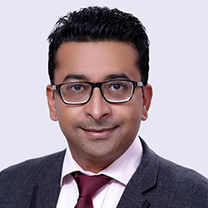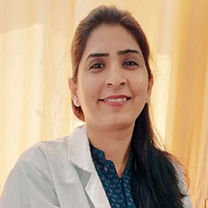24x7 Advanced Healthcare Made Personal
Call & book appointment
What does an Otolaryngologist do?
Otolaryngologists are also known as ENT specialists. They are doctors who treat any problems concerning your ears, throat, and nose. Apart from these, they also treat problems connected to your head or neck.
When should you visit an ENT?
If you notice any kind of discomfort in your ears, nose, or throat then you need to visit an ENT. You should also visit an ENT specialist if you experience any of these,
-
Sinus
-
Nasal congestion
-
Ringing in the ear
-
Sore throat
-
Pain in the ear
What is the difference between an ENT and Pediatric ENT?
Both an ENT and Pediatric ENT are physicians who are trained to treat all problems concerning the ears, nose, and throat and other issues connected to the head or neck. Pediatric ENT treats all ailments relating to the ears, nose and throat in children. Pediatric ENT specialists also treat children with defects of the head and neck since birth.
What conditions can a pediatric ENT treat?
Pediatric ENTs diagnose and treat speech or language problem or any other communication disorders. Apart from these, they also help treat any kind of infection of the ear, nose or throat. Pediatric ENT specialists treat problems concerning the head and neck, and also offer before and after surgery care.
What can cause ENT problems in children?
Children as compared to adults have a sensitive ENT region, especially because the area has not developed completely. Some of the most common causes of ENT problems in children are -
-
Children of 6 months to 2 years of age are mostly sensitive to ear infections. This is due to the shape and size of their eustachian tubes.
-
Children who spend time in groups are more prone to infections.
-
Babies who are fed from bottles while lying in bed are at a greater risk of ear infections.
-
Bone structure and muscles in children are different in children which can make it difficult for the tube to drain.
What are the symptoms of tonsillitis in infants?
-
Some of the commonly observed signs of tonsillitis in children are:
-
Trouble breathing at night
-
Fever or pain in children
-
White spots or discharge on the tonsils
Paediatric ENT or Otolaryngology specialises in the care of children’s Ears, Nose and Throat (ENT). ENT care for children is crucial as it covers some of the most prevalent issues that children face during growth. Bedi Hospital Pediatric ENT specialists cater to issues both common and complex such as:
-
Tonsillitis
-
Sinus disease
-
Ear infections
-
Airway disorders
-
Congenital defects
-
Hearing loss
-
Communication disorders
-
Deafness
-
Cochlear implants
Services
At Bedi Hospital, our team of otolaryngologists are highly experienced to treat paediatric ENT disorders. The hospital, along with the team, aims at delivering clinical excellence with compassion in a child-friendly environment.
Common procedures
ENT surgeons are capable of performing different surgical procedures, including:
-
Tonsillectomy: A procedure usually performed in children, which involves the removal of tonsils.
-
Adenoidectomy: A procedure involving the removal of adenoids.
-
Insertion of grommets for glue ear: A small incision is made in the eardrum and grommets are placed. Grommets are small temporary tubes that ventilate the middle ear and treat middle ear effusions.
-
Microlaryngoscopy: This procedure involves the insertion of a short metal tube called laryngoscope in the larynx or voice box. It may be used to perform a biopsy or surgery.
-
Septoplasty: Septoplasty is done to correct the nasal septum so that obstruction could be cleared to enable clear breathing.
-
Endoscopic Sinus Surgery: This procedure is used to diagnose and treat sinus conditions by advancing a tiny telescope into the nasal passages. Instruments are then placed to restore proper function.
-
Oesophagoscopy: A long flexible tube called oesophagoscope is inserted through the mouth into the oesophagus.
-
Open operations for the removal of neck lumps and salivary gland tumours
-
Tympanomastoid surgery to remove or reconstruct epithelial inclusions within the middle ear
-
Tracheostomy
Subspecialties
-
Otology: This includes the diagnosis and treatment of infection, disease and damage to the ear.
-
Rhinology: This involves the treatment of every aspect of nose and sinus disorders including allergy, infection, inflammatory conditions and tumours. ENT surgeons may also operate on rare tumours of the skull base including pituitary tumours.
-
Head and neck surgery: This involves the treatment of malignant diseases of the head and neck. Including lymph, salivary, thyroid and parathyroid glands.
-
Laryngology: Treatment of the disorders of the larynx and throat, including voice problems, vocal fold nodules and cancer.
-
Facial plastics: Aesthetic procedures followed to correct or reconstruct the form and function of the nose and ears.
-
Skull base surgery/ neurotology: Surgery performed to treat the disorders of the skull base and acoustic neuromas.
-
Thyroid and Parathyroid Surgery: Diagnosis and surgical treatment of thyroid and parathyroid tumours.



















